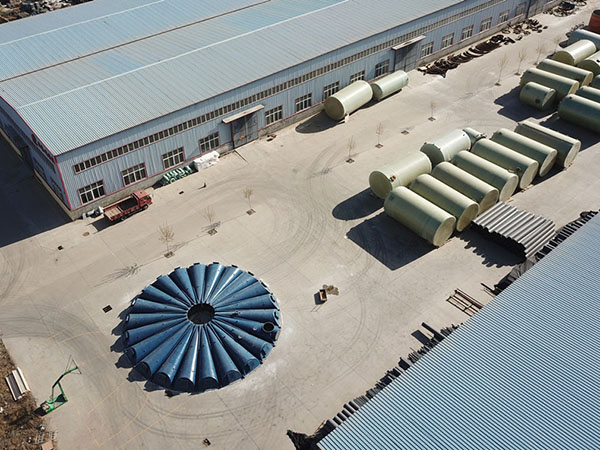
-
 Afrikaans
Afrikaans -
 Albanian
Albanian -
 Amharic
Amharic -
 Arabic
Arabic -
 Armenian
Armenian -
 Azerbaijani
Azerbaijani -
 Basque
Basque -
 Belarusian
Belarusian -
 Bengali
Bengali -
 Bosnian
Bosnian -
 Bulgarian
Bulgarian -
 Catalan
Catalan -
 Cebuano
Cebuano -
 China
China -
 China (Taiwan)
China (Taiwan) -
 Corsican
Corsican -
 Croatian
Croatian -
 Czech
Czech -
 Danish
Danish -
 Dutch
Dutch -
 English
English -
 Esperanto
Esperanto -
 Estonian
Estonian -
 Finnish
Finnish -
 French
French -
 Frisian
Frisian -
 Galician
Galician -
 Georgian
Georgian -
 German
German -
 Greek
Greek -
 Gujarati
Gujarati -
 Haitian Creole
Haitian Creole -
 hausa
hausa -
 hawaiian
hawaiian -
 Hebrew
Hebrew -
 Hindi
Hindi -
 Miao
Miao -
 Hungarian
Hungarian -
 Icelandic
Icelandic -
 igbo
igbo -
 Indonesian
Indonesian -
 irish
irish -
 Italian
Italian -
 Japanese
Japanese -
 Javanese
Javanese -
 Kannada
Kannada -
 kazakh
kazakh -
 Khmer
Khmer -
 Rwandese
Rwandese -
 Korean
Korean -
 Kurdish
Kurdish -
 Kyrgyz
Kyrgyz -
 Lao
Lao -
 Latin
Latin -
 Latvian
Latvian -
 Lithuanian
Lithuanian -
 Luxembourgish
Luxembourgish -
 Macedonian
Macedonian -
 Malgashi
Malgashi -
 Malay
Malay -
 Malayalam
Malayalam -
 Maltese
Maltese -
 Maori
Maori -
 Marathi
Marathi -
 Mongolian
Mongolian -
 Myanmar
Myanmar -
 Nepali
Nepali -
 Norwegian
Norwegian -
 Norwegian
Norwegian -
 Occitan
Occitan -
 Pashto
Pashto -
 Persian
Persian -
 Polish
Polish -
 Portuguese
Portuguese -
 Punjabi
Punjabi -
 Romanian
Romanian -
 Russian
Russian -
 Samoan
Samoan -
 Scottish Gaelic
Scottish Gaelic -
 Serbian
Serbian -
 Sesotho
Sesotho -
 Shona
Shona -
 Sindhi
Sindhi -
 Sinhala
Sinhala -
 Slovak
Slovak -
 Slovenian
Slovenian -
 Somali
Somali -
 Spanish
Spanish -
 Sundanese
Sundanese -
 Swahili
Swahili -
 Swedish
Swedish -
 Tagalog
Tagalog -
 Tajik
Tajik -
 Tamil
Tamil -
 Tatar
Tatar -
 Telugu
Telugu -
 Thai
Thai -
 Turkish
Turkish -
 Turkmen
Turkmen -
 Ukrainian
Ukrainian -
 Urdu
Urdu -
 Uighur
Uighur -
 Uzbek
Uzbek -
 Vietnamese
Vietnamese -
 Welsh
Welsh -
 Bantu
Bantu -
 Yiddish
Yiddish -
 Yoruba
Yoruba -
 Zulu
Zulu
FRP Chimney Construction and Installation for Industrial Applications
FRP Chimney Construction and Installation for Industrial Applications
Fiberglass Reinforced Plastic (FRP) chimneys have emerged as a popular choice for industrial applications due to their unique combination of strength, lightweight properties, and resistance to corrosive environments. This article explores the construction and installation processes of FRP chimneys, highlighting their benefits for industrial settings.
The construction of FRP chimneys begins with the selection of high-quality raw materials, which typically include fiberglass and a resin matrix. The choice of resin is crucial, as it dictates the chimney's resistance to chemical corrosion and thermal degradation. Manufacturers utilize advanced techniques such as filament winding and hand lay-up to construct the chimney sections. These methods ensure that the fiberglass layers are applied evenly, resulting in a sturdy and durable final product. Additionally, the modular design of FRP chimneys allows for easier transportation and assembly.
frp chimney construction and installation for industrial and

The lightweight nature of FRP chimneys significantly simplifies the installation process. Unlike traditional chimney materials such as concrete or steel, FRP components can be handled by fewer workers and with less heavy equipment. This not only reduces labor costs but also minimizes the risk of workplace injuries. The ease of installation further enables quick turnaround times, allowing industries to maintain their operational schedules with minimal disruption.
Furthermore, FRP chimneys are designed to withstand harsh environmental conditions. Their inherent resistance to corrosion makes them ideal for installations in chemical plants, wastewater treatment facilities, and other environments where exposure to corrosive substances is common. This durability extends the lifespan of the chimney, reducing the need for frequent maintenance and replacements, which can incur additional costs for industrial operators.
In summary, the construction and installation of FRP chimneys offer numerous advantages for industrial applications. Their lightweight nature, corrosion resistance, and modularity make them a sensible choice for industries seeking efficient and durable chimney solutions. As industries continue to evolve and seek sustainable options, FRP chimneys are positioned to play a vital role in meeting their operational and environmental needs.
Latest news
-
Exploring the Benefits of Top Hammer Drifter Rods for Enhanced Drilling PerformanceNewsJun.10,2025
-
High-Precision Fiberglass Winding Machine for GRP/FRP Pipe Production – Reliable & Efficient SolutionsNewsJun.10,2025
-
FRP Pipes & Fittings for Shipbuilding - Corrosion-Resistant & LightweightNewsJun.09,2025
-
Premium FRP Flooring Solutions Durable & Slip-ResistantNewsJun.09,2025
-
Premium Fiberglass Rectangular Tanks Durable & Lightweight SolutionNewsJun.09,2025
-
Tapered Drill String Design Guide Durable Performance & UsesNewsJun.09,2025









